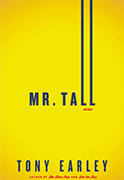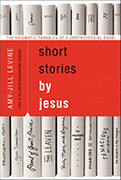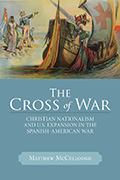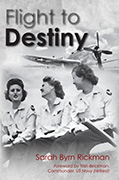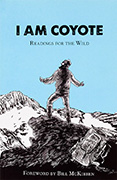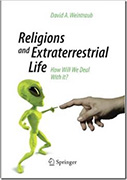Mr. Tall: A Novella and Stories (2014, Little, Brown) by Tony Earley, Samuel Milton Fleming Professor of English
Two decades after his debut collection Here We Are in Paradise heralded Tony Earley as one of the most accomplished writers of his generation, the rueful, bittersweet, and riotous stories of Mr. Tall reestablish him as a mythmaker and tale teller. These stories introduce us not only to ordinary people seeking to live extraordinary lives, but also to Skunk Ape (a southern variant of Bigfoot), the ghost of Jesse James, and a bone-tired Jack the Giant Killer. Whether it’s Appalachia, Nashville, the Carolina Coast, or a make-believe land of talking dogs, each world Earley creates is indelible.
The Last Island (2013, Betimes Books) by David Albert Hogan, BA’84
In his debut novel, Hogan crafts a universal tale of escape, love and redemption in which a Boston fireman attempting to flee personal and professional tragedy accepts a job as a bartender on a Greek island. He meets Kerryn, an animal rights activist who believes dolphins possess consciousness, intelligence and souls, and is waging a covert war to stop local fishermen from using illegal nets that take dolphins’ lives. Pulled into this conflict as his relationship with Kerryn deepens, her passion and convictions lead to a decision that changes both their lives forever. The book was one of three finalists in the contemporary fiction category of the 2014 San Diego Book Awards and was recently an Amazon Literary Bestseller in the U.K.
Sovereignty: Moral and Historical Perspectives (2014, Georgetown) by James Turner Johnson, BD’63
Sovereignty generally refers to the inviolability of a nation’s borders and the right of a nation to protect its borders and ensure internal stability. From the Middle Ages until well into the Modern Period, however, another concept of sovereignty held sway: responsibility for the common good. Johnson argues that these two conceptions—sovereignty as self-defense and sovereignty as acting for the common good—are in conflict and suggests that international bodies must acknowledge this tension. He explores the use of military force in contemporary conflicts, includes a review of radical Islam, and provides a corrective to the idea of sovereignty as territorial integrity in the context of questions regarding humanitarian intervention.
Short Stories by Jesus: The Enigmatic Parables of a Controversial Rabbi (2014, HarperOne) by Amy-Jill Levine, E. Rhodes and Leona B. Carpenter Professor of New Testament Studies and professor of Jewish studies
Levine’s latest book interweaves history and spiritual analysis to explore Jesus’ most popular teaching parables, exposing their misinterpretations and making them lively and relevant for modern readers. She analyzes the “problems with parables,” taking readers back in time to understand how their original Jewish audience understood them. Levine reveals the parables’ connections to first-century economic and agricultural life, social customs and morality, Jewish scriptures and Roman culture. With this revitalized understanding, she interprets these moving stories for the contemporary reader, showing how the parables are not just about Jesus, but are also about us—and when read rightly, still challenge and provoke us 2,000 years later.
The Cross of War (2014, University of Wisconsin) by Matthew McCullough, MTS’05, MA’08, PhD’11
Documenting the rise of “messianic interventionism”—the belief that America can and should intervene altruistically on behalf of other nations—through a wide range of sermons and religious periodicals across regional and denominational lines, McCullough describes the ways that many American Christians came to celebrate military intervention as a messianic sacrifice, to trace the hand of God in a victory more painless and complete than anyone had imagined, and to justify the shift in American foreign policy as a divine calling.
Flight to Destiny (2014, Greyden) by Sarah Byrn Rickman, BA’58
Three fictional young women, each with a connection to a real, historic woman flyer, join the Women’s Auxiliary Ferrying Squadron, known as the WAFS, during World War II to fly aircraft for the U.S Army Air Forces. They are destined to fly “the big ones.” Two get a crack at the B-17—the vaunted Flying Fortress—and all three end up ferrying the mighty fighter aircraft from the factories to the U.S. ports on the Atlantic and Pacific, from which the aircraft are shipped abroad to combat areas. The novel was the grand prize winner for the Greyden Press 2013 Book Competition in the fiction category.
I Am Coyote: Readings for the Wild (2014, Kimbrough Knight) compiled by Jay Schoenberger, BS’04
This anthology of wilderness writings for backpackers, mountaineers and lovers of the outdoors was compiled by Schoenberger, a graduate of the HOD program, whose inspiration for the book “was deeply rooted in my time at Peabody with professors who instilled in me a desire for exploration and living deliberately, as Thoreau once said.” This diverse reader includes pieces by Muir, Lewis and Clark, Darwin, Emerson and lesser-known writers such as Isabella L. Bird (A Lady’s Life in the Rocky Mountains) and Apsley Cherry-Garrard (The Worst Journey in the World), who was a member of Scott’s Terra Nova Expedition, his last Antarctic journey.
Religions and Extraterrestrial Life: How Will We Deal With It? (2014, Springer) by David Weintraub, professor of astronomy
Knowing the answer as to whether humanity has company in the universe will trigger one of the greatest intellectual revolutions in history, not the least of which will be a challenge for at least some terrestrial religions. Which religions will handle the discovery of extraterrestrial life with ease and which will struggle to assimilate this new knowledge about our place in the universe? Weintraub guides readers on a tour of the world’s most widely practiced religions, revealing what, if anything, each religion has to say about the possibility that extraterrestrial life exists and how, or if, a particular religion would work on other planets in distant parts of the universe. Currently available only as an e-book.
